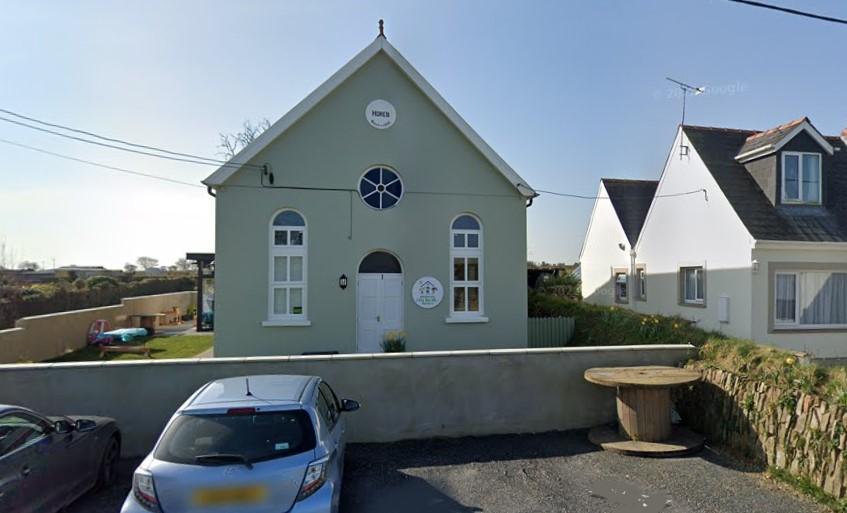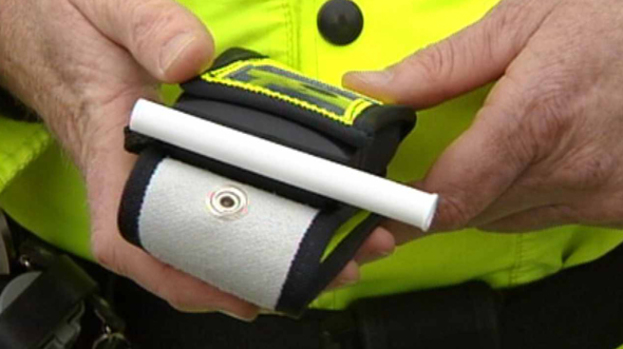Education
Bay plans ‘to consult’ on postgraduate funding


The Diamond Review: Making recommendations in 2016
THE WELSH GOVERNMENT is expected to make an announcement on changes to postgraduate funding for Welsh students.
The UK Government already taking steps to ensure that higher education students from England will receive student finance to study for postgraduate qualifications in Wales.
The Herald contacted the Welsh Government regarding the difference in approach between it and the UK Government on the issue. We pointed out that Welsh students studying for postgraduate qualifications in Wales will not be eligible for the support offered to English students. In fact, Welsh students would be eligible for no student finance support, no matter where they were studying.
A Welsh Government spokesperson told The Herald: “There is currently no statutory support for post graduate study for Welsh students but the Welsh Government plans to consult on proposals for post graduate support next year.
“The Diamond Review will also make its recommendations in 2016. Other sources of support are currently available such as university post graduate bursaries/scholarships. Students can contact their chosen university to see what help, if any, they can offer. Information about the current student support package can be accessed at www.studentfinancewales. co.uk”
In order to bridge the inequality of treatment at postgraduate level, the Welsh Government will have to make an announcement very early in 2016, if Welsh students are not to be left high and dry for the academic year 2016/17 and Welsh Universities are not to lose out.
In the spending review and autumn budget statement, UK Chancellor of the Exchequer George Osborne announced significant changes to the student finance regime for English students who wish to study for higher degrees.
In an extension to the existing student finance settlement, the UK Government is now committed to introduce a master’s loan scheme from 2016, whereby master’s students under 60 can access a loan of up to £10,000 as a contribution towards the cost of their study.
The Minister of State for Universities and Science, Jo Johnson MP, said: ‘’A postgraduate Master’s qualification can help people advance their careers and provide invaluable skills to support our innovation and growth. We want anyone who has the ability to study at this level, regardless of their circumstances, to be able do so. We are offering a new postgraduate Master’s loans of up to £10,000 to help more people do just that.”
The UK Government is also committed to the introduction of income contingent loans for Doctoral study. Its intention is to offer these loans in addition to grant funding, not as a replacement.
Dr David Blaney, Chief Executive of the Higher Education Funding Council for Wales, said: “We expect to see more postgraduate students as the proportion of graduates in the population grows. Postgraduate students bring a high level of knowledge and skills into the economy and postgraduate courses are an excellent choice for career progression.
“Our commitment to widening access to higher education also recognises the importance of postgraduate study in ensuring fair access to the professions and higher-level skills. The devolved administrations are currently considering potential options for their own postgraduate loan schemes from the 2016/17 academic year.”
Education
Pembrokeshire youth workers lead life-changing wellbeing visit to Iceland

A GROUP of Pembrokeshire school-based youth workers recently took young people from four secondary schools on an unforgettable six-day visit to Iceland — a journey focused not only on education, but also on wellbeing, confidence and personal growth.
Funded through Taith, an international learning exchange programme for people in Wales, the trip brought together young people from across the county, many of whom had never travelled abroad before.
From the moment they arrived, the experience was designed to encourage participants to step outside their comfort zones, build resilience and develop friendships in a supportive environment.
One of the most powerful moments came as the group stood together at the Old Harbour in Reykjavik under the night sky, watching the Northern Lights shimmer above them. For many, it provided a rare pause from everyday pressures — a moment of calm, connection and awe that youth workers say will remain with them for years to come.
The group also attended Iceland’s Festival of Lights, experiencing the atmosphere of creativity, music and community spirit. Sharing the celebration helped young people appreciate the importance of culture, belonging and collective joy in supporting mental wellbeing.
A visit to the Secret Lagoon offered further opportunities to slow down. Immersed in warm geothermal waters surrounded by dramatic scenery, participants experienced the benefits of relaxation and mindfulness. Youth workers noted that these quieter moments allowed conversations to develop naturally, strengthening trust and deepening relationships.
The trip placed strong emphasis on teamwork and independence. Young people navigated travel arrangements, managed responsibilities, supported one another and adapted to unfamiliar surroundings — experiences which helped build confidence and social skills.
Meeting Icelandic peers at a local youth club was another highlight. Conversations about daily life, hopes and ambitions reinforced the idea that young people across the world share similar challenges and aspirations. These exchanges fostered empathy, broadened horizons and encouraged a stronger sense of global citizenship.
Senior Youth Worker Tristy McDermott said the impact of the visit was clear.
“We observed noticeable growth in many participants over the six days — quieter young people finding their voice, friendships forming across schools, and individuals showing resilience in new situations,” she said.
“Time away from routine, combined with positive adult support and inspiring surroundings, created space for reflection and self-discovery.
“For the young people of Pembrokeshire, this was far more than a visit abroad. It was an opportunity to build confidence, strengthen wellbeing, form lasting memories and return home with a renewed sense of possibility.”
The group extended thanks to Taith for making the experience possible.
Community
Letterston nursery equipment could be stored in cemetery

A CALL for a storage container for a “well-established and valued” Pembrokeshire children’s nursery in a nearby cemetery has been submitted to county planners.
In an application to Pembrokeshire County Council, Diane Evans of Meithrinfa Do Re Mi Nursery seeks permission for the installation of a storage container, partially in retrospect, at Horeb Cemetery, Station Road, Letterston.
A supporting statement says: “The container is required to provide essential ancillary storage to support the lawful and established nursery use within the [nearby] chapel building.
“The site forms part of an active cemetery, owned and managed by a group of trustees. The applicant is one of the trustees and has obtained formal permission from the trustees for the container to be sited on this land. The area selected previously comprised a large, longstanding mound of garden waste which has now been removed. The land has been levelled and prepared with a hard-standing base.
“The container will be used solely for storage of nursery equipment and materials, including outdoor learning resources, maintenance equipment, and items required to manage both the nursery grounds and the cemetery land. No additional operational activity will take place within or around the container.”
It adds: “The day nursery provides childcare for approximately 83 children from the local community and employs 21 staff, all of whom live locally. The nursery is a well-established and valued community facility, supporting local families and contributing positively to the local economy. Adequate storage is essential to ensure the safe, efficient and compliant operation of the nursery. The chapel building itself has limited internal storage, making external ancillary storage necessary.”
It says the nursery “operates with a strong community focus and promotes sustainability and environmental awareness,” with plans to soften its appearance through the planting of trees, shrubs and flowers.
It added: “Children will take part in a ‘sow, grow and give’ project, growing cut flowers from seed. These flowers will be made available to the community, particularly visitors to the cemetery, who will be invited to cut flowers to place on the graves of loved ones. This initiative enhances biodiversity, strengthens community links, and adds social value to the cemetery space.”
The application will be considered by county planners at a later date.
Education
Parents urge council not to close Ysgol Llansteffan

Campaigners call for delay amid Welsh language investigation and rising pupil numbers
PARENTS and campaigners have urged Carmarthenshire County Council’s Cabinet not to recommend the closure of Ysgol Llansteffan when members meet on Monday (Feb 23).
The appeal comes ahead of a proposed decision that could see the village’s Welsh-medium primary school close in August this year.
The Ysgol Llansteffan Parents and Teachers Association (PTA), supported by Cymdeithas yr Iaith, has written to councillors calling for the process to be halted, arguing that key evidence remains incomplete and that the case for closure is flawed.

Among their concerns is an ongoing investigation by the Welsh Language Commissioner into the language impact assessment used to support the closure proposal. Campaigners say it would be inappropriate for the council to make a final decision before the investigation is concluded.
They also claim no council decision-makers have visited the school to verify the information used in the proposal, despite significant changes in circumstances, including a rise in pupil numbers to 17 as of January 2026.
The PTA argues that this increase undermines earlier projections and raises questions about the reliability of longer-term forecasts used to justify closure.
Financial concerns have also been raised. While council documents suggest annual savings of around £112,000, campaigners say transport costs of approximately £50,000 per year and inflationary pressures have not been clearly accounted for, potentially overstating the net benefit.
Parents say closure would remove parental choice and risk damaging Welsh-medium education in the area by forcing some children to travel further or potentially move into English-medium provision.
Cymdeithas yr Iaith has backed the PTA’s call, warning that the council’s objection report failed to properly address concerns that insufficient school capacity elsewhere could push pupils out of Welsh-medium education altogether.
Campaigners have also criticised what they describe as factual inconsistencies in the council’s reports, including outdated enrolment figures and conflicting capacity estimates for neighbouring schools.
The PTA has asked the council to defer any decision until updated data is available, the Commissioner’s findings are published, and alternative options for sustaining the school have been fully explored.
In their letter, parents stressed they remain willing to work constructively with the council to develop a long-term solution that would allow the school to remain open as a sustainable Welsh-medium provision for the community.
Carmarthenshire County Council has previously said the proposal is intended to address falling pupil numbers, high surplus places and financial pressures at the school. Cabinet members were told earlier in the process that neighbouring Ysgol Llangain would have sufficient capacity to accommodate pupils if the closure proceeds, and that transferring learners would provide access to improved facilities and help ensure long-term sustainability of education provision in the area.
The final decision is expected to be taken by full council in March following the Cabinet’s recommendation.
-

 Health5 days ago
Health5 days agoWithybush loses emergency surgery in shock health board decision
-

 Health5 days ago
Health5 days agoHealth board confirms major hospital changes across west Wales
-

 Health4 days ago
Health4 days agoConcerns grow over Bronglais stroke plans as politicians demand clarity
-

 Health5 days ago
Health5 days agoHealth board: Changes will bring “resilience and sustainability” to West Wales services
-

 Local Government2 days ago
Local Government2 days agoCandidate who withdrew from Hakin race will still appear on ballot paper
-

 Crime7 days ago
Crime7 days agoWoman, 79, made 141 unnecessary 999 calls putting lives at risk, court hears
-

 Crime7 days ago
Crime7 days agoRepeat drug-driver banned for three years after Pembroke stop
-

 Business5 days ago
Business5 days agoMounting complaints: More Computer Solutions Wales customers claim losses





























